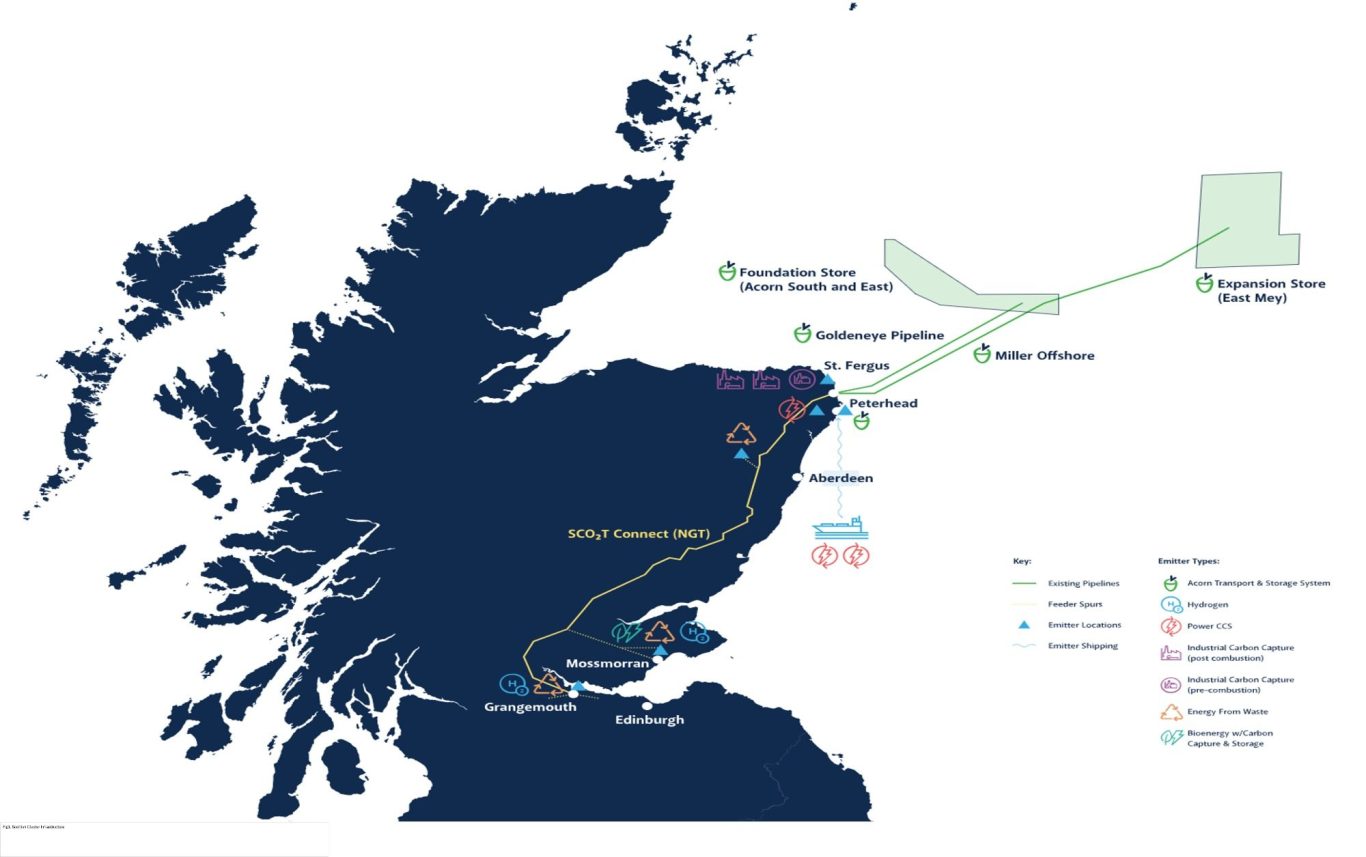Carbon Capture and Storage (CCS)
Key Findings
Introduction
Carbon Capture and Storage (CCS) refers to the process of separating, treating, and transporting carbon dioxide (CO2) captured from industrial activities, such as steel and cement production. The captured gas is stored in long term stores, such as underground geological formations. Over time, the stored carbon will bind with the elements of the surrounding rock and go through mineralisation, becoming a part of the rock formation overtime. In March 2023, the UK government announced a new funding commitment for carbon capture, utilization, and storage (CCUS) technology as part of its Spring Budget. This initiative includes an investment of £20 billion to support the early development of CCUS technology, contributing to the broader goal of achieving net zero emissions by 2050, a target signed into law in 2019. The aim is to capture between 20 and 30 million tonnes of CO₂ per annum. The UK has ambitions for two CCS/CCUS industrial clusters by the mid-2020's (track 1) and a further two clusters by 2030 (track 2). Scotland has great CCS potential due to current infrastructure in place within depleted oil fields. CCS has the potential to remove CO2 from the atmosphere by reducing atmospheric carbon concentrations and leading nations to decarbonisation.
CCS in Scotland: CCS projects in development in the Scottish cluster, as part of track 2, include ACT Acorn and the Peterhead Carbon Capture Power Station, with the former being the only advanced transport and storage network in Scotland and the most mature and best understood storage sites in the UK. The Scottish Cluster includes CCS projects, the SCO₂T Connect Project (a pipeline repurposing project which links the Central Belt with North-East Scotland) and a variety of industrial, power, hydrogen, bioenergy and waste-to-energy businesses. The cluster has a shared aim of capturing up to 10 million tonnes of CO₂ annually by 2030.
The ACT Acorn CCS project plans to use an existing gas sweetening plant in St Fergus, Aberdeenshire and uses legacy pipeline infrastructure to transport CO₂ offshore to well-understood North Sea storage sites, such as the Acorn South, Acorn East, and East Mey stores. The CO₂ is stored 100 km offshore and 2.5 km beneath the seabed in sandstone formations, sealed by a 400-meter thick caprock. The existing pipelines have the capacity to transport up to 20 million tonnes of CO₂ per year, with potential expansion to transport captured CO₂ from Scottish central belt industries via the SCO₂T Connect project. The ACT Acorn project can contribute to the creation of 4,700 development and construction jobs in Scotland and 10,800 across the UK.
The Peterhead Carbon Capture Power Station project, currently in the permitting stage, is designed to capture 1.5 million tonnes of CO₂ annually, which accounts for around 5% of the UK government's 2030 CCS targets. The project will be developed in a single phase, with construction expected to commence in 2026 and the power station anticipated to become operational by 2027.

Fig1. Scottish Cluster Infrastructure
Notes
Linked Information Sheets
Key sources of Information
Reviewed on/by
Status
Live. Next update due 20/08/24
To report errors, highlight new data, or discuss alternative interpretations, please complete the form below and we will aim to respond to you within 28 days
Contact us
Telephone: 07971149117
E-mail: ian.hay@stateofthecoast.scot
We need your consent to load the translations
We use a third-party service to translate the website content that may collect data about your activity. Please review the details in the privacy policy and accept the service to view the translations.

